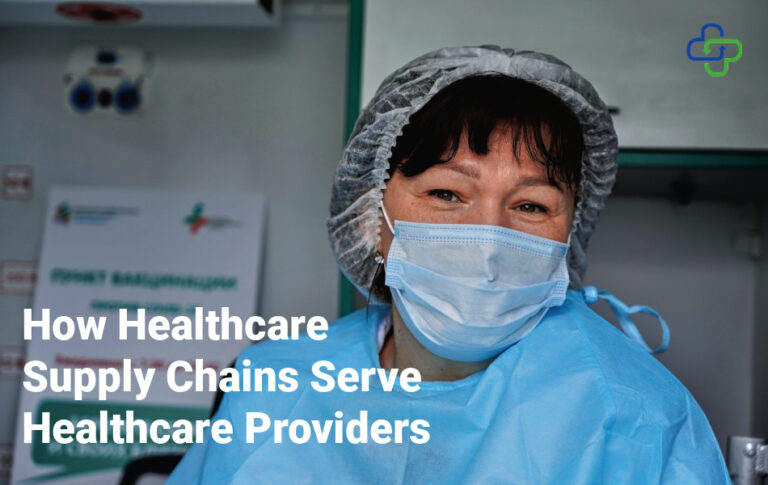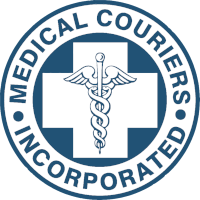Coming out of the recent pandemic, hospitals and medical providers have begun to grasp the importance of a resilient supply chain and on-time final mile delivery. With time-sensitive supplies and precious human lives involved, a healthcare supply chain has a lot more riding on it than your typical supply chain.
What is a Healthcare Supply Chain?
The healthcare supply chain is the entire network of individuals, processes, or organizations involved in manufacturing, sourcing, and distributing medicines, medical supplies, and equipment. Essentially, everyone and everything that helps healthcare practitioners do their job is part of that supply chain.
A well-managed supply chain is a strategic asset for healthcare providers. In an industry as critical and time-bound as ours, it is vital that the right product gets to the right person at the right time.
The Importance of a Robust Healthcare Supply Chain
Unlike other industries, supply chains in healthcare are complex and fragmented. To get the best out of your supply chain, consider collaborating with well-established partners who are experts in their field. Building a resilient logistics network improves the entire healthcare system we work within.
It Keeps Patients Safe
A well-organized supply chain improves the overall quality of patient care. It ensures a steady flow of medicines and medical supplies to the health practitioners and it allows for emergency delivery when necessary. Access to real-time data is a vital part of improving a supply chain to ensure it is free of disruptions and delays.
Reduces Healthcare Costs
According to a recent study by Gartner, the supply chain averages 37.3% of patient care costs in a health system. A streamlined inventory coupled with utilizing resources more efficiently and achieving better coordination within departments and vendors are all great for the bottom line. Reducing operational costs and minimizing wastage through supply chains can only happen through continuous innovation and optimization.
Improves Provider Workflow
Whether you are a large hospital chain, an independent lab, or a closed-door pharmacy, when it comes to patient health and safety, time is life. You should not have to worry about supply shortages or administrative disruptions while caring for ailing patients. Having access to an adequate stock of medicines and supplies dramatically simplifies workflow for doctors, nurses, pharmacists, and supporting staff.
Building a Future-Ready Healthcare Supply Chain Framework
So it’s clear that a resilient and robust supply network yields ongoing pay-offs through efficiency and cost-effectiveness. How do you build it?
Step 1 – Identify and Address Underlying Challenges
A structurally weak supply chain wastes money. Premature investments in technology, unreliable inventory data, logistics bottlenecks, low supplier diversity, or poor collaboration with other touch points along your supply chain cause inefficiency throughout the whole healthcare network. Build resilience by evaluating current processes and zero in on the root cause of inefficiencies.
Step 2 – Then Invest in the Right Technology
Once you have identified issues plaguing a supply chain, use updated technology to tackle them. A tech-enabled supply chain allows for intelligent forecasting, enhances productivity, and provides end-to-end visibility. Using tech that can grow with you builds transparency into your network and helps to future-proof your supply chain.
Step 3 – Work with Those Who Value Innovation and Redundancy
Agility and redundancy are key when designing a robust supply chain. In health crises like pandemics and natural disasters, a robust supply chain requires a high degree of flexibility, speed, and reliability to meet the surge in demand – something that traditional supply chains are lacking. Built around obsolete systems, these do not provide the visibility or analytics to help you make informed decisions regarding procurement, contingency stock, or logistics.
To further future-proof your supply chain, lean on partners with a stellar record, like MCI. We value technology and innovation while adding driver redundancy into our service network to protect against service failures.
A Shift Towards Decentralized Care and Home-Based Healthcare
As if building a resilient healthcare supply chain within a hospital-lab-pharmacy setting isn’t enough, in the past five years we have seen a record jump in decentralized clinical trials and increased adoption of hospital-level home care. This adds an extra level of complexity into the healthcare logistics network!
For such an ecosystem to thrive, investing in a digital architecture may not be enough. A logistics partner with expertise in handling and delivering time-sensitive medical treatments and specimens will be of incredible value. In a decentralized scenario, Medical Couriers is not only the face of inter-departmental logistics but also the compassionate face greeting your patients during pickups of specimens and deliveries of medications and other medical supplies.
A reliable medical courier partner is integral to a smooth-functioning healthcare supply chain. At MCI, we have equipped our staff and fleet of drivers with leading-edge technology and trained them for on-time delivery with the highest level of safety and security. We promote a culture of care, and our dedicated and friendly team is ready to play their part in bringing world-class healthcare to every patient’s doorstep, 24×7.
Click here to reach out to us and start future proofing your supply chain now.
References:











